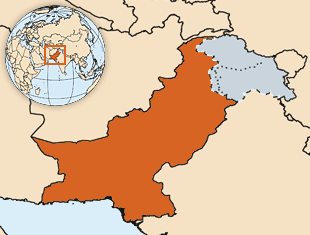Pakistan: The Global Pivot State

First published on February 14, 2019
Pakistan’s promising economic potential, international connectivity capabilities, and unparalleled geostrategic location combine with its world-class military and proven diplomatic finesse over the decades to turn the South Asian country into the global pivot state of the 21st century.
As astounding as it may sound to most observers, the global pivot state of the 21st century isn’t China, the US, nor Russia, but Pakistan. The South Asian state regrettably has a terrible international reputation as a result of the joint Indo-American infowar that’s been waged against it over the past few decades, but an objective look at the country’s geostrategic and domestic capabilities reveals that it’s in a prime position to influentially shape the contours of the coming century. It therefore shouldn’t be surprising that China had the foresight to partner with it decades before anyone else did, but other Great Powers like Russia are finally awakening to its importance, and this is in turn making Pakistan the most strategically sought-after country in the world.
The China-Pakistan Economic Corridor (CPEC) is Beijing’s flagship project of its world-changing Belt & Road Initiative (BRI) because it crucially enables the People’s Republic to avoid the South China Sea and Strait of Malacca hotspots and obtain reliable access to the Mideast and Africa, which provide China with energy resources for its economy and growing consumer markets for its products, respectively. BRI is redirecting global trade routes from West to East and literally building the basis for the emerging Multipolar World Order, so considering Pakistan’s irreplaceably important role in this process by virtue of CPEC, China’s South Asian partner can be reconceptualized as the cornerstone of Beijing’s future world vision. This in and of itself makes Pakistan pivotal, but there’s actually much more to it than just that.
CPEC isn’t just a “highway” from Xinjiang to the Arabian Sea but a series of megaprojects through which Pakistan can transform itself from being a passive object of International Relations to a leading subject of the rapidly changing global order if it creatively expands this central corridor throughout the rest of the supercontinent in order to become the Zipper of Eurasia.
The country’s domestic economic potential is extremely promising when remembering that it’s a nation of over 200 million people uniquely positioned at the crossroads of China’s future trade route with the rest of the “Global South”. With this in mind, Prime Minister Khan recently told the world at the UAE’s World Government Summit not to “miss the boat” and lose out on their chance to capitalize off of his country’s expected growth.
It’s little wonder then that major investment players such as Saudi Arabia and the UAE are jumping at the opportunity to take part in this before any of their competitors can, wanting to get ahead of the race by establishing a premier presence in Pakistan as it becomes the shortest trade route between their economies and China’s. That’s not all there is to it, however, since Pakistan is capable of expanding CPEC in the Northern, Western, and Southern directions via the CPEC+ branch corridors to connect itself with Central Asia and Russia, the rest of West Asia (Iran, Turkey), and Africa, which could altogether make it the Convergence of Civilizations and the antidote to Huntington’s poisonous attempt to divide and rule the Eastern Hemisphere through his “Clash of Civilizations” thesis.
Building off of its CPEC+ civilizational-geostrategic connectivity prospects, Pakistan can institutionalize its role as the Zipper of Eurasia by bringing together the two incipient multilateral strategic partnerships that it’s a part of – the Multipolar CENTO with Iran and Turkey, and the Multipolar Trilateral with China and Russia – to form the Golden Ring of Multipolar Great Powers smack dab in the center of Eurasia, greatly aided as it would be by the instrumental role that Islamabad will naturally play in the post-American multipolar blueprint for Afghanistan. Pakistan can pull this off because it has a proven track record of diplomatic success in balancing between various powers, be it the US and China or Saudi Arabia and Iran, and its world-class nuclear-armed military is an impressive partner for all.
Simply put, Pakistan is the pivot state upon which all of China’s future plans depend, therefore recasting it as the kingmaker of the New Cold War and the world-changing multipolar processes of the 21st century. That said, Pakistan is also a pivot state in its own right, one that’s capable of zipping together the various forces of Eurasia and becoming the convergence point of the Eastern Hemisphere’s many diverse civilizations, which can be institutionalized through the Golden Ring framework that it’s the key component of. Prophetically, Pakistani founding father Muhammad Ali Jinnah predicted all of this when he famously proclaimed in 1948 that “Pakistan is the pivot of the world, placed on the frontier on which the future position of the world revolves”, and each passing day proves that he was right.
*
Note to readers: please click the share buttons below. Forward this article to your email lists. Crosspost on your blog site, internet forums. etc.
This article was originally published on Eurasia Future.
Andrew Korybko is an American Moscow-based political analyst specializing in the relationship between the US strategy in Afro-Eurasia, China’s One Belt One Road global vision of New Silk Road connectivity, and Hybrid Warfare. He is a frequent contributor to Global Research.

